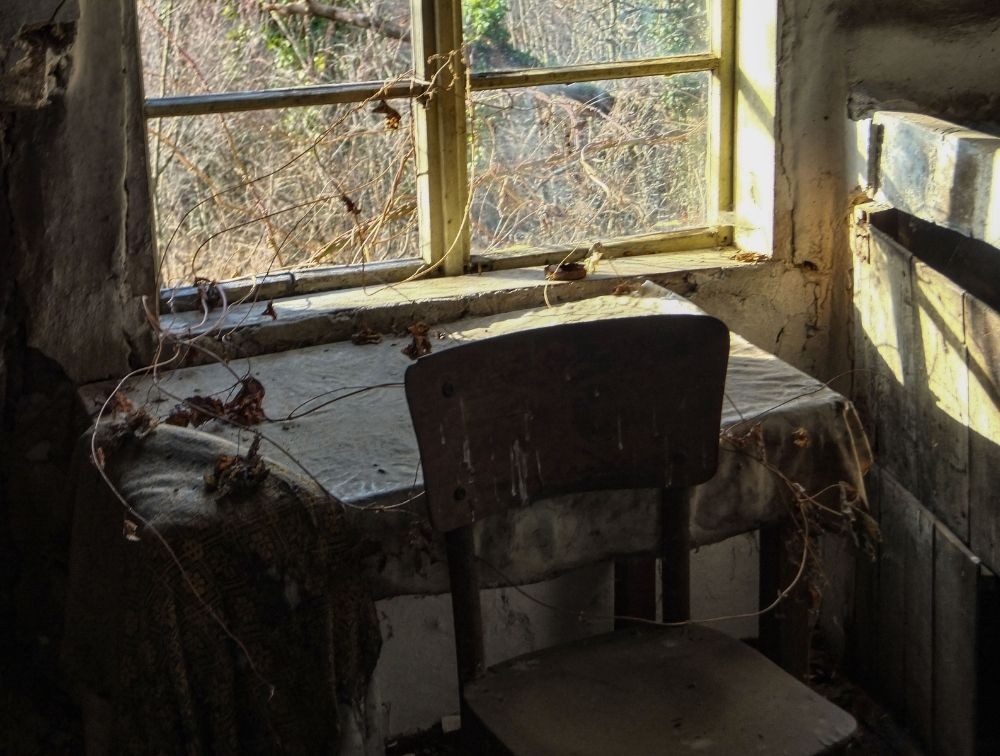Wind in the branches, birdsong, raindrops and cracking glass from broken windows – this is what Bulgaria’s ghost villages sound like. In the region around Tryavna, a small town in the Balkan Range, there are some 100 old villages and neighbourhoods with a total population of around 1,000. In some there are 1 or 2 people living, others have been abandoned a long time ago, their run-down houses grown over by briars and weeds as if straight out of a Brothers Grimm story. But one musician decided to record the breath of the lost villages and to turn it into… music, bringing the past back to life.

Mirian Kolev lives in Tryavna and his passion is experimental music, he has collaborated with visual artists and has toured the world. But this past year the coronavirus has kept him home. That was how his unconventional project came into being. Mirian started travelling around in the region of Tryavna and discovered veritable gems.
“No more than 10 kilometres from the town there are villages that are difficult to find because there is no road leading to them. They are abandoned completely and have become part of the forest,” the musician explains. To begin with he started taking pictures but then decided to turn them into music by recording the sounds of the crumbling buildings. The result is an album called “Ghost villages”.
“From some of the houses I recorded separate sounds, then processed them using software and turned them into music, a method in experimental music called field recording. In this case I added guitar. I have tried to make it very minimalistic so as to give the whole thing room for the imagination. This album has been posted online,” Mirian says.

The silence of the abandoned Tryanva villages is deep, frozen in time, broken only by birdsong or the sound of twigs snapping. That is why he goes there when the weather is bad – when it is raining the raindrops seep through the holes in the roofs while the wind roars through the broken windows and whirls in what were once rooms, hurling about abandoned possessions and yellowed photos of people nobody remembers…
“On the one hand it is easy to imagine that there was life there years ago. There are even places where it looks like the people suddenly got up and left, leaving even the cutlery on the table. And you can see how life ebbed away from these places. But on the other the forest consumes them and I think that is an absolutely natural process because it is part of the cycle of life. It is nature reclaiming them,” Mirian Kolev says.

The musician has so far recorded the sound of around 10 abandoned villages around Tryavna
Mirian is also an amateur photographer. He has in his archives hundreds of shots of lonely, dilapidated houses from different periods from places around Tryavna. “Some are made of adobe bricks, others are wooden, there are still others which are newer, with modern-day bricks. But in a few years’ time they will be gone without a trace,” he says.
Mirian’s project comes to remind us just how vulnerable and transient we are on this Earth.
Photos: Mirian Kolev
Spanish writer Ana Andreu Baquero is coming to Bulgaria to present her novel "The Princess of Buchenwald" , the Cervantes Institute, which is organising the event with the Hermes publishing house, announced. The presentation of the book is scheduled..
On February 12, in the cosy space of the Bulgaria Gallery in the heart of Rome, compatriots and Italians will gather to commemorate a Bulgarian healer who with perseverance and dedication managed to change the lives of thousands of..
"Music discovered me," says Georgi Grozev and tells us with a smile how in kindergarten he went to sign up for piano lessons on his own. "And that is how my journey in music started, almost as a joke." Georgi Grozev studies..

+359 2 9336 661
